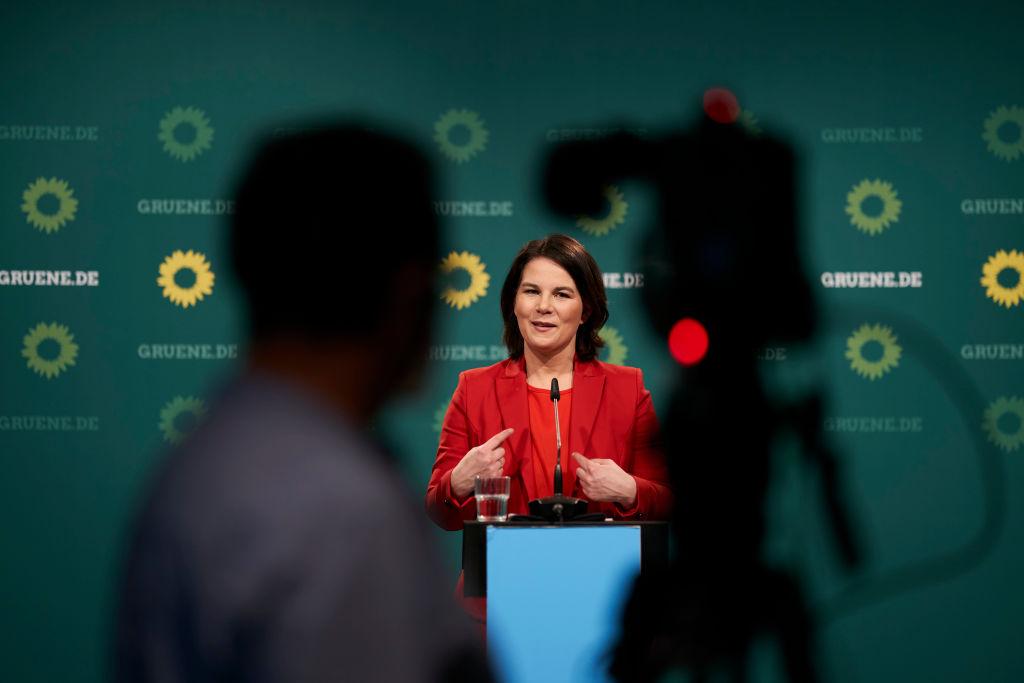
In the last 50 years, Germany has experienced three miracles. The one-time sick man of Europe became an Exportweltmeister (export world champion). It also overcame its past (Vergangenheitsbewältigung). And it built a political and economic union in which its former enemies have become friends. But now the comfortable world forged by these miracles is crumbling, leaving Germany’s governing party, the Christian Democratic Union (CDU), acting like a deer caught in headlights.
Rightly proud of what they have achieved, Germans are reluctant to take lessons from other Europeans, particularly those who seem to have mishandled their own affairs. But in this crucial election year, outgoing Chancellor Angela Merkel’s signature method of muddling through is showing signs of strain. With the CDU and its Bavarian sister party, the Christian Social Union (CSU), divided over who should succeed her, Germany’s Greens suddenly have a historic opportunity.
While the CDU/CSU has overruled its own voters by tapping CDU leader Armin Laschet as its candidate for chancellor, the Greens have nominated their energetic, 40-year-old co-leader Annalena Baerbock for the job. In a country that is deeply resistant to change, Baerbock promises reform without disruption—a velvet revolution. As the Greens put it in their draft election program: ‘We will bring some good traditions to bear in new ways, establish some new things, and replace some familiar things. But we will create security in the transition.’
The Greens party certainly has managed to reform itself. Not too long ago, it was seen as a Verbotspartei (prohibitionist party), most known for shaming and lecturing Germans about the virtues of vegetarianism. Now, it’s the party that most embodies optimism for what Germany could be. Rather than demanding that Germans give up their lifestyles, the Greens are promising to make Germany a better version of itself, by opening up new pathways to prosperity to replace those that are in danger of becoming obsolete.
For example, the party envisions a green industrial policy to reinvent Germany’s economic base so that it will remain competitive in a world that is moving away from fossil fuels. As the Greens’ Franziska Brantner explained to me, this process would have climate and digital strategies at its core. ‘If we don’t take that train’, she warns, ‘we will stand for a lost economic model. The old model was great: it allowed us to trade with everyone, to make a lot of money without making almost any contribution to security. It was great but, unfortunately, it cannot last.’
The Greens recognise that the only way the German car industry can survive is by focusing on emissions-free cars; hence, the party has a plan to make Germany a world leader in energy cell production. The party also wants to reduce Germany’s dangerous dependence on exports to China and imports of hydrocarbons from Russia, and to invest in programs to support high-tech start-ups and cloud-computing infrastructure.
The Greens have also abandoned the traditional leftist scepticism of patriotism. The title of the party’s draft election program can be loosely translated as ‘Germany has it all’. Germany has everything it needs to face the challenges of the future.
In a telephone interview, Cem Özdemir, a former party leader, emphasised the need to engage with debates about national identity. ‘With immigration and globalisation’, he explained, ‘We need to have a discussion about what it means to be German. It was a mistake that progressives largely ignored the discussion during the refugee crisis. It allowed others to take over the territory.’ In a stark departure from the past, Greens today frequently use terms such as ‘Heimat’ (homeland), and openly discuss how the idea of Germanness can be modernised.
When it comes to Europe, the Greens want to move from Merkel’s ‘nein, nein, nein’ policy to one based on proactive engagement. In a recent interview with the Frankfurter Allgemeine Sonntagszeitung, Baerbock pointed out that Germany can have a strong foreign policy only if it acts in concert with the rest of Europe. She wants to help build a European Union that is sovereign and committed to acting in line with its values—including in the relationship with China.
For her part, Brantner hopes that Germany can overcome the ‘two generational lies’ underpinning its European policy. The first lie is that Germany can focus merely on the economy, while ignoring investments in security. ‘We cannot continue trading with everyone, making big profits and hoping that others will secure our sovereignty’, she told me. ‘If we don’t agree with everything [French President Emmanuel] Macron says, we should put forward our own ideas.’
The second lie is that Europe can have a joint currency without a joint investment policy or budget, simply by relying on the European Central Bank. Brantner believes that it is time ‘to have a real debate about this in Germany’.
Today’s Greens understand that after decades of remarkable success, Germany’s position has become precarious. As China and America battle it out, globalisation risks being thrown into reverse at a time when the digital revolution is eclipsing Germany’s traditional economic strengths.
Germany’s remarkable engagement with its own history does not offer a model for integrating a more multicultural and religiously diverse population. And the failure of successive governments to acquaint the German public with the details of European policy has made it difficult to secure consent for EU-level measures that would serve Germany’s own interests.
Sigmund Freud offered an apt portrait of today’s Germany when he described patients who were ‘wrecked by success’. In the Greens, however, the country might just have found the cure to this affliction. It may seem strange that a party with revolutionary origins and aspirations would enter the race for the chancellery with promises of prudent, calibrated reform. But that’s what happens when a party gets serious about actually governing, rather than forever campaigning from the sidelines.
Much could happen between now and the federal election in September. But never before have the Greens started a campaign in such a strong position.